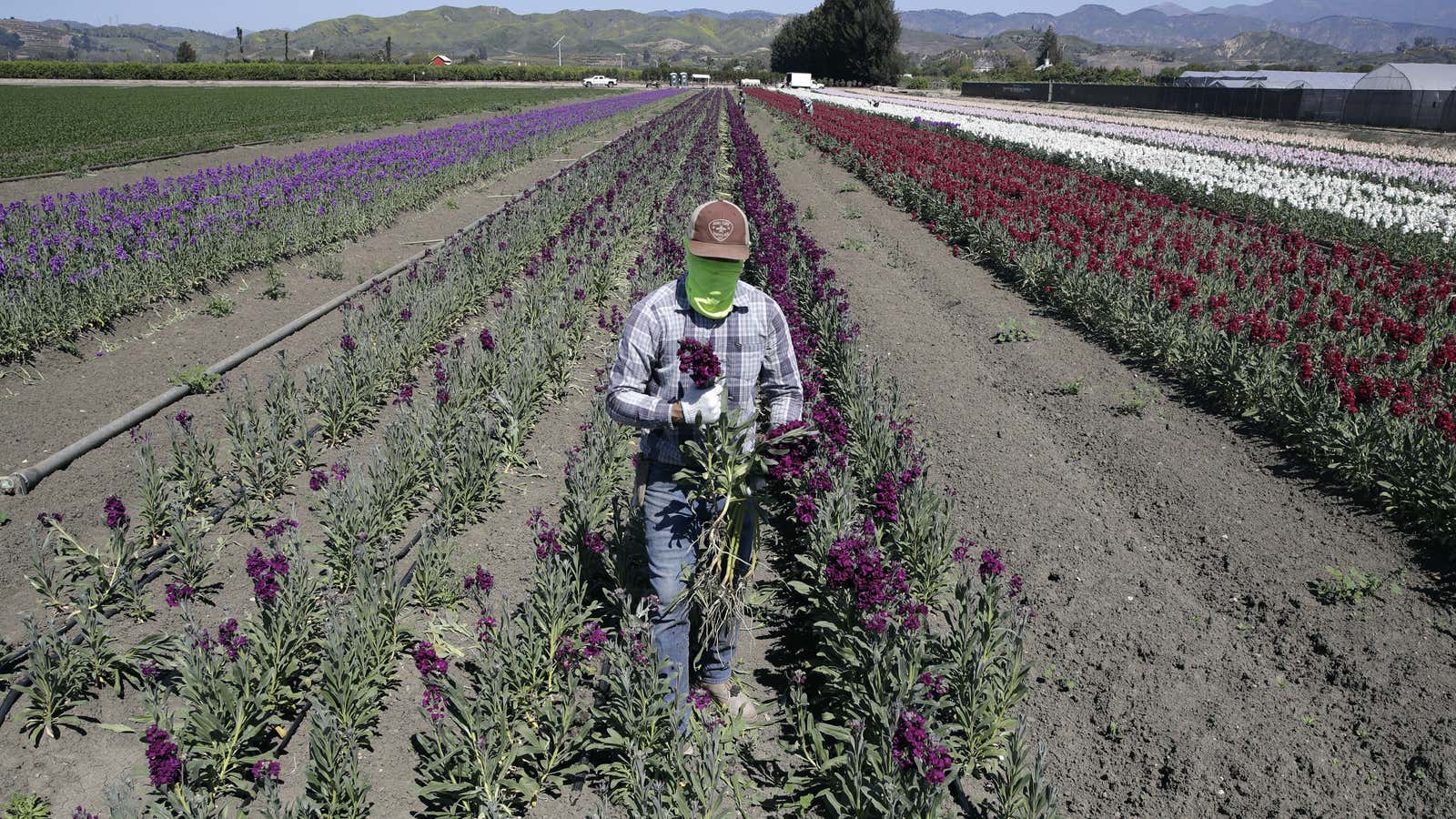American politicians, business leaders, and pundits are proposing strategies for restarting the economy and getting our lives back to “normal.” But before we rush to reestablish things as they were, we should ask ourselves whether that’s really where we want to go.
The working conditions we have accepted as “normal” should not be our norm for rebuilding. The people who keep the food supply-chain working—those who pick, process, and package our food and put it on store shelves—have always been among the lowest-paid workers in our society, struggling to afford food themselves. Health aides and childcare workers are poorly compensated, too, and often lack access to affordable care themselves.
The millions of people who do these essential jobs have been excluded from the abundance of our economy and marginalized by our society. We should not continue to accept this as normal.
I live in Montgomery County, Maryland, an affluent county outside of Washington DC. While unemployment in the county was under 3% until the recent crisis, the county’s public school system estimated that over a third of its students were eligible for free and reduced-price meals. Now, like school systems across the country, Montgomery County Public Schools is distributing meals to keep children from going hungry. These children didn’t need to be fed by schools because their parents didn’t work, but because their parents didn’t earn enough to feed them. This is a disgrace. It should not be “normal” for hard-working people to earn so little that they cannot afford food for their families.
Let’s live up to our values
We need to build a better version of “normal,” through our business models, policy choices, norms, and laws. We have always professed that work has dignity, and that hard work is the path to the American Dream. But we ignored the ways in which our public policies, business practices, and narratives about low-wage workers have devalued this work and the people who do it. Basic rules about fair wages, reasonable work hours, and safe working conditions are out of date and inadequately enforced. Too many jobs, and the workers who perform them, are characterized as “low-skill” or “low productivity,” as if this justifies paying a poverty wage.
Some argue that technology will eliminate the need for people to do these jobs, lessening the urgency to improve working conditions. But despite dramatic predictions of driverless vehicles, we are relying on drivers more than ever to keep our distributions systems going. It is time to stop pretending that the millions of low-wage workers who power our food systems, care systems, transportation systems, and more can be replaced by robots anytime soon.
If we are a country that values hard work, we need to take seriously the struggles working people have in affording a decent living, and design policies that encourage better compensation and lower the cost of living. Laws around wages, hours, and worker safety should be adjusted to a modern standard, and they should be adequately enforced so that businesses that follow the rules are not undermined by businesses that don’t. Policy should play a stronger role in reducing the costs of healthcare, childcare, transportation, housing, and education—costs that have been overwhelming the household budgets of working families.
Our institutions need strengthening, too
Business practices that focus narrowly on profit maximization extract wealth from workers, families, and communities, rather than build shared prosperity. Local, state, and federal policy should incentivize business practices that give workers a stake in business success, rather than just cutting business taxes in hopes that employers will provide more jobs that many people can’t even live on. The #MeToo Movement showed the degree to which forced arbitration and non-disclosure agreements concealed abuses that were taking place across the country’s workplaces, from movie stars to mall workers. We need labor laws that protect working people’s rights to speak freely about their experiences at work.
As we look at the unfolding crisis and see millions of people losing their jobs, we can congratulate Congress for coming together to put resources into pandemic unemployment benefits. But this laudable policy then ran into the inadequate capacity of our unemployment insurance system to quickly distribute these benefits. As we overhaul policies, we must invest in our institutions and social insurance systems to allow more working people to participate in our economy and society with confidence.
Today we must do all we can to meet widespread need—to keep workers and their families from going hungry, to keep them in their homes, and to keep them healthy. But this crisis will pass, and people will eventually go back to work. What conditions will we be willing to accept as “normal” for workers whose essential role is finally beginning to be appreciated by society?” Now is the time to decide.
